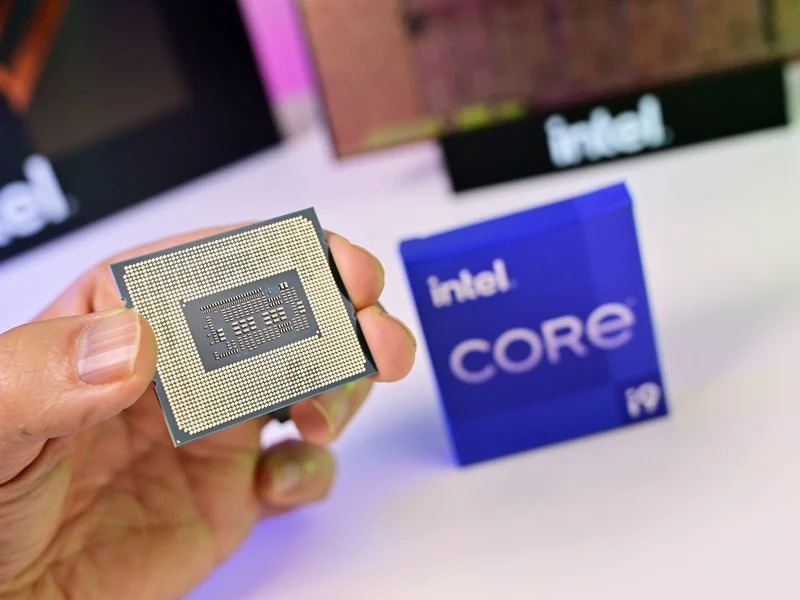11 Things You Need To Know Before Buying A CPU

When it comes to buying a CPU, there are several factors to consider in order to make the best option for your needs. What amount of money do you wish to spend? What are your requirements? What more components will you need to purchase in order for your computer to function properly?
In this blog article, we will go over some extremely crucial factors to consider when selecting a CPU. So, whether you’re shopping for your first computer or just want to update an old one, keep reading for some useful advice.
Things You Need To Know Before Buying A CPU
1. Know Your Budget
The first step in choosing a CPU is determining how much money you want to spend. On the market, there are several varieties, brands, and prices to choose from. More costlier CPUs will have quicker processing speeds as well as better power capacities, as a general rule.
If your primary goal is simply browsing the internet or writing emails, there’s no need to spend hundreds of dollars on an Advanced Micro Devices 8300 Series four core CPU with enormous graphics capabilities for increased gaming experiences – it’d be overkill. Furthermore, if you want additional information on choosing the finest CPUs for your budget, you can always rely on CPU Ninja for the ideal option.
2. CPU Requirements
The second critical thing to consider when acquiring a new CPU is what specifications it must meet. Will this computer work effectively without the acquisition of any extra hardware? Is it necessary for one component to be more compatible with another in order for it to work properly? Intel CPUs, for example, require motherboards with an LGA 115x socket type.
3. Brand
Another thing to consider when acquiring a new CPU is the brand to go with. Each firm has its own set of advantages and disadvantages, as well as differing viewpoints from consumers all across the internet. It all boils down to personal choice in the end. It’s critical to know what you’re looking for.
Many manufacturers also provide multiple CPU series that are better suited for particular workloads. To get the most out of their system, a gamer, for example, would want to get a high-quality CPU and the greatest graphics card available.
4. CPU Cache
Furthermore, it is critical to investigate a CPU’s cache. The amount of Level Three Cache that a processor has is directly correlated with how long it takes for data and information requests from your computer’s RAM to be fulfilled by the hard drive or SSD – if this number is low, you’ll have a very slow machine overall due in part to all files having to go through the processed before reaching their destinations. It will assist you in determining the type of speed and performance necessary for your computer.<
5. CPU Cooling
Another important thing to consider when purchasing a CPU is how it will be cooled in order to avoid overheating and/or damage caused by increasing heat. If the processor is not properly cooled, the inside components might become so hot that they burn or melt, resulting in costly repairs or even a new computer if one breaks totally!
Manufacturers employ two types of coolers: active (with fans) and passive (without fans). Before making any judgments regarding replacing it with another component, it’s critical to know which kind yours possesses.
6. Understand The Difference Between A CPU And GPU
It’s also critical to grasp the distinction between a CPU and a GPU. The Central Processing Unit (CPU) of a computer is its brain, while the Graphics Processing Unit (GPU) is responsible for creating visual effects such as textures and lighting on your monitor or display screen. It will allow the user to play games and watch HD films. Also, combining CPUs and GPUs is not a smart idea because it might result in lasting damage.
7. Make Sure Your Motherboard Can Support It
Before purchasing a new processor, be sure that the motherboard is compatible with the type of CPU you want. If not, trying installation may cause irreversible harm to both components if they do not operate well together. Before proceeding, consult with someone who is knowledgeable about the compatibility of various CPUs and motherboards. When buying, seek for a motherboard with a lot of ports so that you may simply add components later on.
8. Consider What You’ll Be Using It For
Different CPUs are better suited to different tasks. For example, if you want to use your computer mostly for word processing and internet browsing, an i-series Intel CPU would suffice. However, if you plan on doing a lot of gaming or video editing, you’ll need a more powerful CPU with faster clock rates. Before you buy a computer, you should think about what you’ll use it for.
9. Make Sure You Have Enough RAM And Storage Space
RAM, or Random Access Memory, is one of the most crucial components of any computer. By offering short-term memory storage, this allows your system to run numerous programmes at the same time. Most CPUs come with a specific amount of RAM built in, but if your demands are larger, you may need to acquire additional RAM.
Also, make sure you have adequate storage space for all of your information; otherwise, you’ll wind up filling up your hard drive and slowing down your computer.
10. Get Familiar With The Socket Type
When purchasing a CPU, it is critical to understand the motherboard’s socket type. AMD and Intel are the two primary kinds. Check the paperwork or contact the manufacturer if you’re not sure which kind your motherboard utilises.
Knowing the socket type of your CPU will allow you to decide which CPUs are compatible with your system. You should also ensure that the CPU you choose is compatible with any other components, such as your graphics card.
11. Is There A Warranty On The Product
When purchasing a CPU, it is critical to be aware of any warranties that may be included with the device. During the component’s lifetime, the warranty will cover any and all faults and malfunctions. For added peace of mind, research what types of losses aren’t covered by your guarantee.
Conclusion
To summarise, there are several factors to consider before buying a CPU. While CPUs might be costly, it is critical not to sacrifice on quality in order to achieve the highest performance possible. Although you should eventually make your own judgement about what is best for you, following this guidance will make selecting a perfect model much easier.









